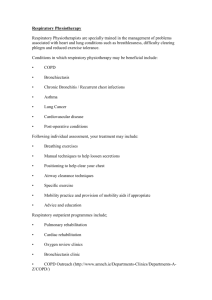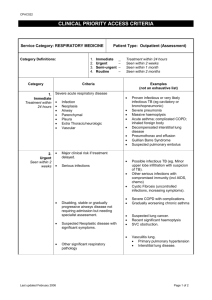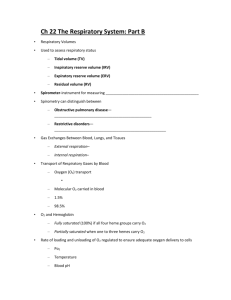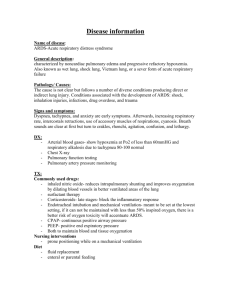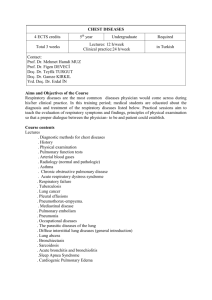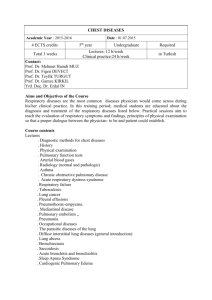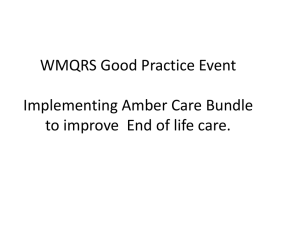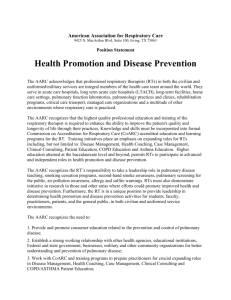Year of the Lung - AARC.org - American Association for Respiratory
advertisement
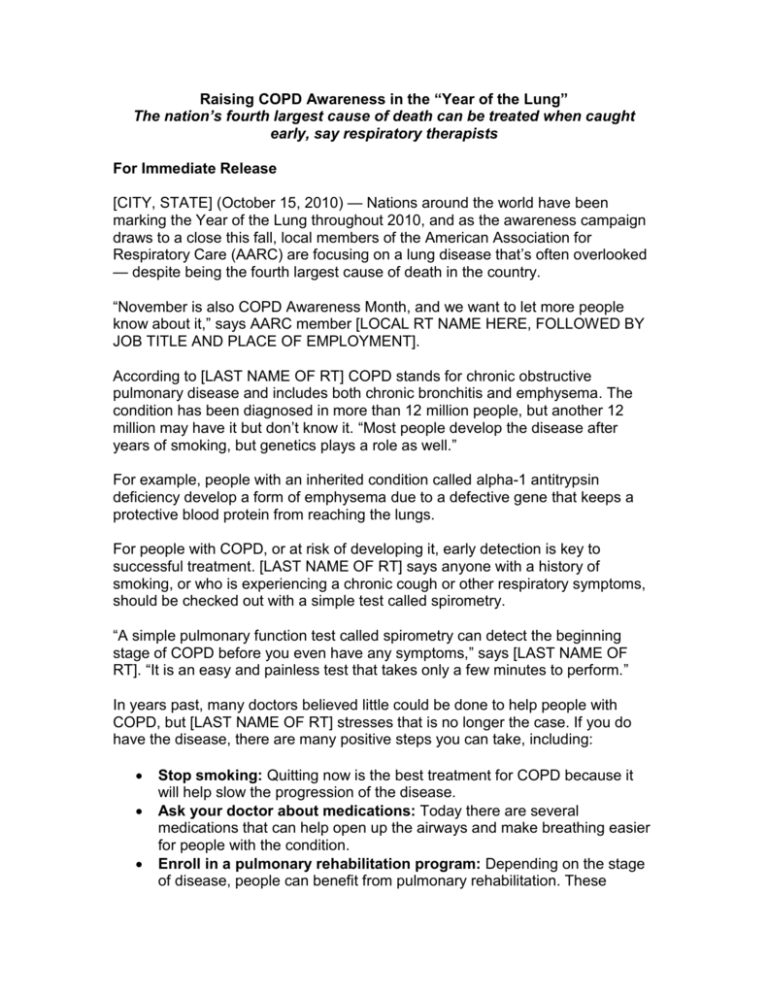
Raising COPD Awareness in the “Year of the Lung” The nation’s fourth largest cause of death can be treated when caught early, say respiratory therapists For Immediate Release [CITY, STATE] (October 15, 2010) — Nations around the world have been marking the Year of the Lung throughout 2010, and as the awareness campaign draws to a close this fall, local members of the American Association for Respiratory Care (AARC) are focusing on a lung disease that’s often overlooked — despite being the fourth largest cause of death in the country. “November is also COPD Awareness Month, and we want to let more people know about it,” says AARC member [LOCAL RT NAME HERE, FOLLOWED BY JOB TITLE AND PLACE OF EMPLOYMENT]. According to [LAST NAME OF RT] COPD stands for chronic obstructive pulmonary disease and includes both chronic bronchitis and emphysema. The condition has been diagnosed in more than 12 million people, but another 12 million may have it but don’t know it. “Most people develop the disease after years of smoking, but genetics plays a role as well.” For example, people with an inherited condition called alpha-1 antitrypsin deficiency develop a form of emphysema due to a defective gene that keeps a protective blood protein from reaching the lungs. For people with COPD, or at risk of developing it, early detection is key to successful treatment. [LAST NAME OF RT] says anyone with a history of smoking, or who is experiencing a chronic cough or other respiratory symptoms, should be checked out with a simple test called spirometry. “A simple pulmonary function test called spirometry can detect the beginning stage of COPD before you even have any symptoms,” says [LAST NAME OF RT]. “It is an easy and painless test that takes only a few minutes to perform.” In years past, many doctors believed little could be done to help people with COPD, but [LAST NAME OF RT] stresses that is no longer the case. If you do have the disease, there are many positive steps you can take, including: Stop smoking: Quitting now is the best treatment for COPD because it will help slow the progression of the disease. Ask your doctor about medications: Today there are several medications that can help open up the airways and make breathing easier for people with the condition. Enroll in a pulmonary rehabilitation program: Depending on the stage of disease, people can benefit from pulmonary rehabilitation. These programs are offered at hospitals and outpatient clinics across the nation and provide a safe environment to exercise, plus education on the disease and how to overcome some of its limitations. Medicare recently added a specific benefit for pulmonary rehab, which is making it easier for more people to take part in this life preserving therapy. “Many people are living long and productive lives despite being diagnosed with COPD,” says [NAME OF RT]. “If you’re a smoker or ex-smoker, or if you are having symptoms like a chronic cough, excessive mucus, shortness of breath, or chest tightness, see your doctor and ask to be tested. Catching it early and taking the proper steps to treat it can greatly improve your quality of life.” For more information about COPD and other respiratory conditions, visit the AARC’s consumer web site, www.yourlunghealth.org. Respiratory Therapists (RTs) are specially trained and licensed respiratory health care professionals assisting physicians in diagnosis, treatment, and management of respiratory diseases. RTs provide care in hospitals, outpatient centers, physicians’ offices, skilled nursing facilities, and patients’ homes. The American Association for Respiratory Care (AARC) is a not-for-profit, professional organization, consisting of 50,000 respiratory therapists, physicians, and other health care professionals. AARC is dedicated to assisting persons with respiratory diseases receive safe and effective respiratory care. 2010 The Year of the Lung is being organized by the Forum of International Respiratory Societies, which includes the Asociacion Latinoamericana del Thorax, the American College of Chest Physicians, the American Thoracic Society, the Asia Pacific Society of Respirology, the European Respiratory Society, the International Union Against Tuberculosis and Lung Disease, and the Pan African Thoracic Society. The AARC is a Year of the Lung partner. ###
